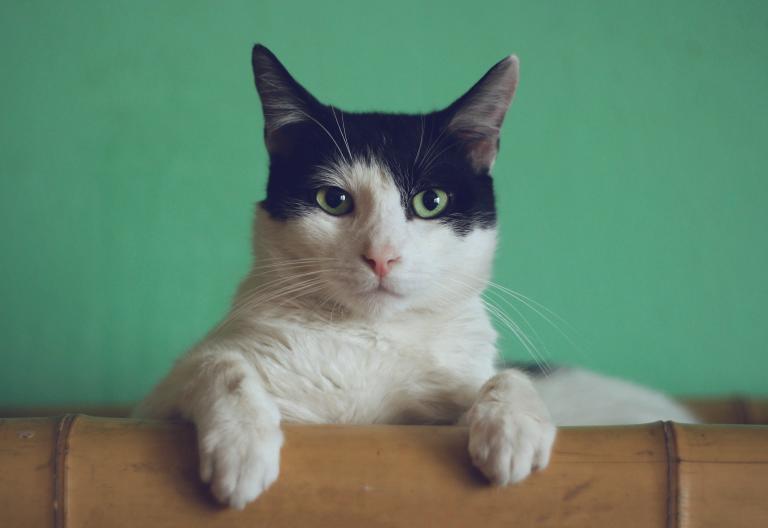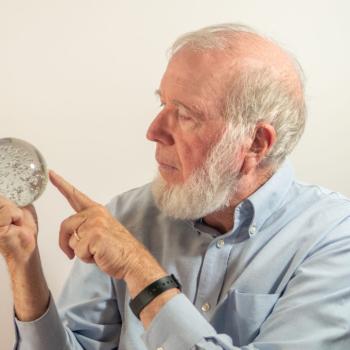Are you a dog person or a cat person? Most people fall into one camp or the other. I am proudly a cat person, not that it has always been that way. I started out as a dog person, but early in my adult life I was converted. My wife can take credit for that.
Laney is a magnet for cats. When she is outdoors, strays have a way of finding her. Not long after we moved in together, we soon had one, then two, then 5 cats living in our midst. Over the years, we have since had as many as 9. Some of them recently aged out and our herd dropped to 4, but not being able to help ourselves, we are back to 5 again.
What I once did not appreciate about cats, I now see as their strength: their independence. While most dogs plead for our love, cats seldom ask for it—but if offered a pet on the head or body or a good scratch, they gladly accept it. In some sense, it’s more of a relationship of equals. And did I mention that cats are good for us?
In a recent article in Shape magazine, Pam O’Brien points out that research shows cats can actually help us relax and reduce stress. Cats “boost our moods, give definition to our days and provide a sense of connection.” In a survey of cat owners, 87 percent said their cats had “a positive effect on their well-being.” Another study showed that interacting with your cat can improve your state of mind and be “a source of comfort.”
Cats are well versed in “the art of living.”
Spend enough time with a cat and you will sense they have an inner intelligence that goes beyond what you might expect in a four-legged creature. That’s especially true should you ever find yourself looking into the eyes of a cat, a pursuit perfectly captured by the novelist Leonard Michaels (courtesy Maria Popova) in a book simply titled A Cat:
You look at a cat, and it looks at you. You have the scary idea that a cat is a kind of person. You look more carefully and let the cat’s eyes tell you what it sees. It sees you are a kind of cat. A cat always looks into your eyes, as if it knows that you see it with your eyes. As if it knows.
The late author Jo Coudert devoted one of her books, Seven Cats and the Art of Living, to her cats. Coudert had her own posse of cats that she carted between a home in New York City and a country home in western New Jersey. She astutely tells us that: “There is something in the art of living that can be learned from cats.” She goes on to say, “it may be easier to observe in a cat’s simple behavior what works and what does not, than to try and tease our conclusions from the more complex behavior of human beings.”
6 Spiritual Lessons Our Cats Teach Us
I believe cats are spiritual because they are not concerned with material or physical things like us humans. Their interests seem to lie more in satisfying the needs of their unique collective soul. With that said, both Coudert and Michaels show us there is much we can learn from cats. Pulling from their respective books, here are 6 lessons (lightly edited).
Lesson 1: Cats show us how to be comfortable in our surroundings.
Michaels points out that “a cat is content to be a cat.” There is no upward striving to be something greater than they already are, they are comfortable in their own skin. Michaels writes:
Nothing is more at home in the world than a cat. Sprawled in sunlight, a cat dissolves, pours free of its shape, and becomes one with the ground. Sliding along your leg, it gives you a sense of fusion. A cat makes itself one with anything. It is at home in the world.
Lesson 2: Cats can teach us about being in the present moment.
Coudert talks frequently of her favorite cat, a black male named Bitty. In this passage she speaks to how cats are always present to life, a state we humans struggle to maintain:
Bitty was totally in the moment, an absorption I envied, for I find it difficult to keep my footing on the narrow ledge of the present and frequently slip off into thoughts of the past or future. Cats possess presence. They live at the center of their own lives, not on the fringe of larger lives.
Lesson 3: Cats can help us overcome our own self-consciousness.
Coudert recounts how she was once a wallflower at social gatherings, “waiting for someone to notice me, speak to me, make me welcome.” This was not the case with Bitty who was more inclined to “go forward pleasantly, conveying good will, without waiting for signs of acceptance.” He would show interest in others before they showed interest in him. “He had engaged our attention and almost immediately our affections because he had insisted on interacting with us.” It was an attribute that Coudert learned to integrate into her own life.
Lesson 4: Cats can help us through our loneliness.
This passage comes from Michaels and shows how dogs are not the only ones who might be called a (wo)man’s best friend:
When it comes to loneliness, a cat is excellent company. It is a lonely animal. It understands what you feel. A dog also understands, but it makes such a big deal of being there for you, bumping against you, flopping about your feet, licking your face. It keeps saying, “Here I am.” A cat will just be, suffering with you in philosophical silence.
Lesson 5: Cats teach us about being more accepting of life.
Life has its ups and downs, its great days and not-so-good ones. Cats show us how to go with the flow, as Coudert illustrates here:
I doubt that a cat ever asks itself if life if worth living. A cat accepts the goodness of being alive and sets about living with all the curiosity and comfort and convenience it can muster. A cat does not try to make life go according to its wishes. Whatever comes in the way of attention, admiration and food, a cat enjoys but does not assume these things were its right.
Lesson 6: Cats show us how to be engaged with the world.
A final passage from Coudert about her beloved Bitty:
A great deal of Bitty’s pleasure in life came from his taking an intense interest in the world around him. While it is perfectly true that a cat has nothing better to do, it occurs to me that neither has a person. The world is profoundly interesting. People are engaging. To find them so, the only requirement is that we be alert and responsive, that we think about what we are seeing and hearing, that we think beyond ourselves.














